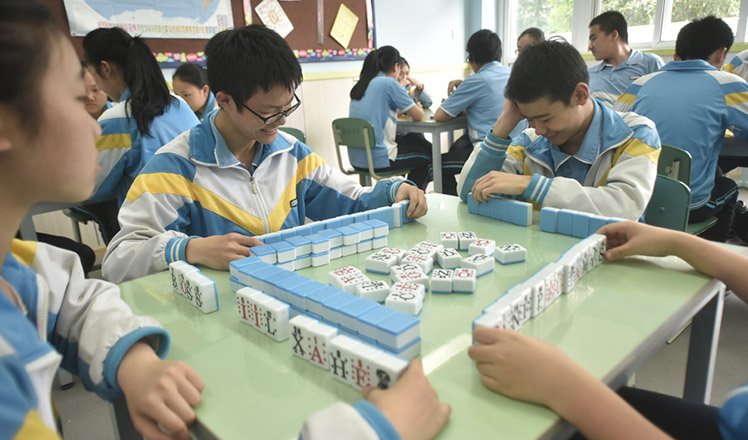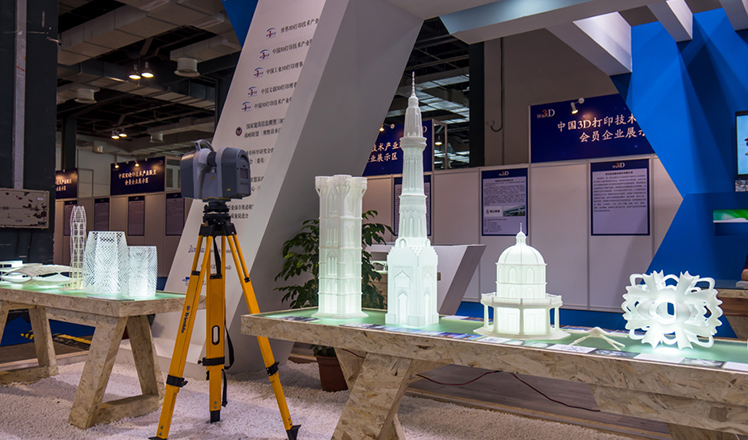Let reason and cooperation prevail in South China Sea
Updated: 2016-06-04 07:33
By Yi Fan(China Daily)
|
||||||||
As the Arbitral Tribunal in The Hague ponders its ruling on the South China Sea arbitration unilaterally initiated by the Philippines, the region and indeed much of the world will be wondering how it may affect the already strained relations between China and the Philippines and the larger picture in the South China Sea.
It is often easy to forget that China and the Philippines have been friendly neighbors for centuries. Many Filipinos have Chinese ancestry, including former President Corazon Aquino and her son, outgoing President Benigno Aquino III.
Since the 1970s when the Philippines illegally occupied eight of China's Nansha Islands and reefs, the South China Sea has become a source of friction between the two countries.
Yet, previous Philippine governments opted for dialogue and consultation with China, and each flare-up ended with reaffirmations of the two countries' joint commitment to addressing disputes through consultation and negotiation.
For example, in 1999, President Joseph Estrada ordered the vessel the Philippines stranded on Huangyan Island to be towed away. And in 2004, President Gloria Arroyo approved a joint marine seismic undertaking in the South China Sea between the two countries, which, upon the consent of both China and the Philippines became a tripartite one with Vietnam's participation the following year.
Bilateral relations flourished despite the disputes and trade grew threefold between 1995 and 2007.
However, things quickly slid into a downward spiral when President Aquino III presided over a serious confrontation with China over Huangyan Island in 2012, which culminated in the initiation of arbitration without prior consultation with China in January 2013.
The Philippines knows well that its submissions, which concern territorial sovereignty, are beyond the scope of the United Nations Convention on the Law of the Sea. As for maritime delimitation, the Chinese government made a declaration in accordance with UNCLOS in 2006, excluding disputes concerning, among others, maritime delimitation from the compulsory dispute settlement procedures of UNCLOS.
Furthermore, the arbitration move both breached the Philippines' bilateral agreement with China and its obligations under the Declaration on the Conduct of Parties in the South China Sea, which calls for negotiated settlement of disputes among the sovereign states directly concerned.
The Philippines' real motive is to challenge China's territorial sovereignty and maritime rights and interests in the South China Sea and seek legal cover for its illegal occupation of Chinese territory. It is entirely lawful for China to take the position of not accepting or participating in the arbitration. As a matter of fact, the ruling has neither legal force nor binding effect.
The arbitration drama has much to do with the United States. Sometimes seen as an outsider, the US has loomed large in the South China Sea issue from the very beginning. After Japan's defeat in World War II, it was the US which provided military vessels for Chinese troops to take back the South China Sea islands pursuant to international legal instruments, including the Cairo Declaration and Potsdam Proclamation. The US did not challenge the Dotted Line when it was publicized by the Chinese government in 1948.
Over the recent years, however, the US' stance has changed from somewhat tacit recognition of Chinese sovereignty to neutrality, and then to instigating trouble by proxy. Now it has become a protagonist itself by flexing its military muscles and challenging China's sovereignty.
Clearly, the US sees the South China Sea as an emerging frontline for geostrategic rivalry with China. Such a grim view only exposes the US' own strategic anxiety and risks evolving into a self-fulfilling prophecy.
China remains committed to upholding peace and stability and addressing disputes through consultation and negotiation. But for China, there is very little room for compromise on issues of territory and sovereignty. The US provocations will only create a real danger of a head-on collision with China.
Having said that, for all the saber-rattling by defense hawks in Washington, there is little appetite in the US for conflict with China over a few rocks in the faraway West Pacific. And China, which is pursuing a policy of good-neighborliness, has little interest in seeing relations further strained. The best way out for all sides would be to work toward an easing of the situation.
First, China should seek ways to work with the incoming Rodrigo Duturte administration to minimize the negative impact of the arbitration and achieve a turnaround in relations with the Philippines, especially when Duturte has indicated a willingness to engage China on the South China Sea issue.
Second, China should solidify mutual trust and cooperation with its neighbors in the Association of Southeast Asian Nations, which will provide an anchor of stability in the South China Sea. We should promote the early conclusion of the code of conduct for the South China Sea with ASEAN countries based on consensus and work toward a rules-based regional order.
Third, China and the US should find a way out of their security conundrum. They should enhance crisis management mechanisms to avoid accidents, and engage in more candid dialogue at the strategic level to avoid misjudgment and build trust through cooperation.
Both US President Barack Obama and his successor should share the vision of Chinese President Xi Jinping: There is no such thing as the Thucydides trap, but should major countries repeatedly make the mistake of strategic miscalculation, they may create such traps for themselves.
The author is a Beijing-based observer of international studies.

(China Daily 06/04/2016 page5)
- Suspected IS terrorists arrested in Germany
- Japanese boy abandoned by parents in Hokkaido forest found alive
- China to build Africa's biggest university library
- 'Kill list' found in UCLA campus shooter's residence: Police
- Swiss declare Alps tamed as Gotthard rail tunnel opens
- China urges Japan to properly settle Chinese forced laborers issue

 Students use creative ways to relieve gaokao stress
Students use creative ways to relieve gaokao stress
 Frederik the Great: Is it a horse or a stunning statue?
Frederik the Great: Is it a horse or a stunning statue?
 How mahjong can improve your chances with English
How mahjong can improve your chances with English
 Shanghai's 3D printing expo attracts over 100 companies
Shanghai's 3D printing expo attracts over 100 companies
 Traditional incense production in Nyemo county, China's Tibet
Traditional incense production in Nyemo county, China's Tibet
 Performers wanted for Shanghai Disney park
Performers wanted for Shanghai Disney park
 New law protects ancient villages in Southwest China's Lhasa
New law protects ancient villages in Southwest China's Lhasa
 Kids with HIV in Shanxi's Red Ribbon School
Kids with HIV in Shanxi's Red Ribbon School
Most Viewed
Editor's Picks

|

|

|

|

|

|
Today's Top News
Chinese State Councilor Yang Jiechi to meet Kerry
Chinese stocks surge on back of MSCI rumors
Liang avoids jail in shooting death
China's finance minister addresses ratings downgrade
Duke alumni visit Chinese Embassy
Marriott unlikely to top Anbang offer for Starwood: Observers
Chinese biopharma debuts on Nasdaq
What ends Jeb Bush's White House hopes
US Weekly

|

|









